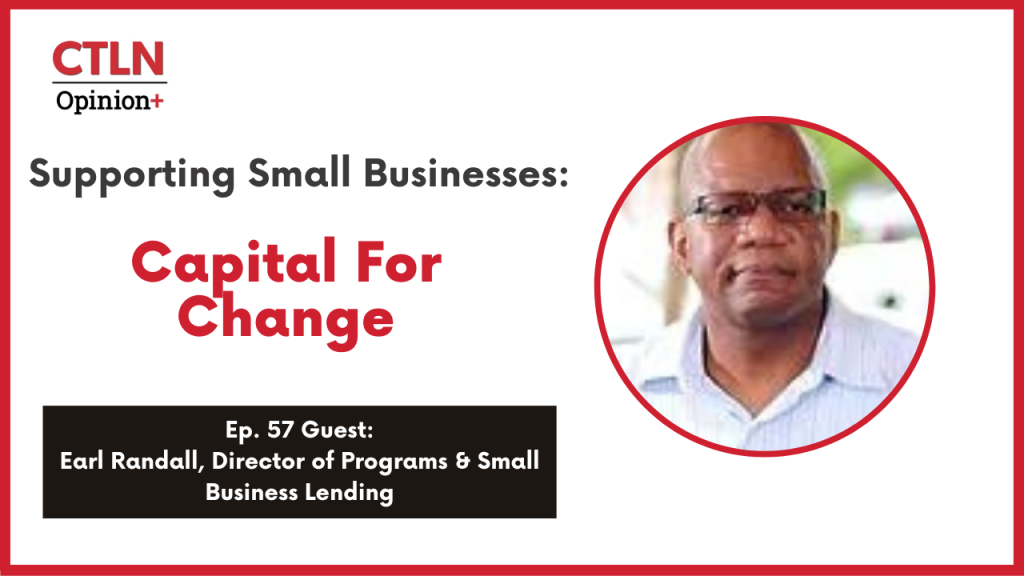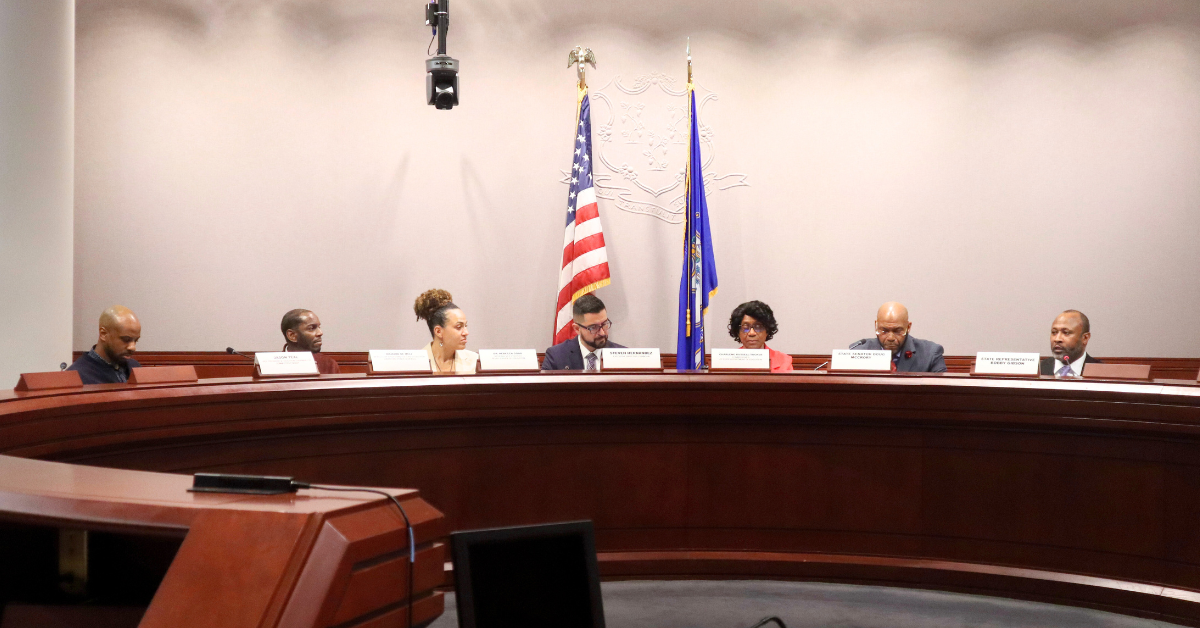Welcome to another episode of CTLN Latino News Opinion+ where we talk about major issues the Latinx and other underrepresented communities face in the state of Connecticut.
This week we spoke with Earl Randall from Capital for Change on the pandemic’s continuous impact on local organizations along with resources for small businesses and nonprofits in underserved communities.
Capital for Change works throughout Connecticut in a variety of areas as the organization is “dedicated to providing flexible, creative, and responsive financial products and services that support an inclusive and sustainable economy,” reads its mission statement.
As the Director of Programs & Small Business Lending, Earl oversees and collaborates on a variety of programs—including MyHomeCT and the Westville Program—that look to support homeowners, landlords, growing organizations, and other residents across Connecticut.
Randall explained that Capital for Change has previously participated in small business programs, but in 2022 the organization decided to re-enter the small business arena in a new and effective way.
In August 2022, Capital for Change officially became a lender under the CT Small Business Boost Fund—a private-public partnership between the Department of Economic and Community Development, the National Development Council, and more.
“The program is specifically geared to provide low-interest financing to businesses with the emphasis on small businesses throughout Connecticut,” Randall explained. “The general gist is to provide funding to businesses, quite frankly, that have not had the opportunity to take advantage of some of the federal programs.”
There are two major factors that make the Fund unique and distinctive from other loan programs, Randall said in the interview.
“The interest rate currently on CT Boost Loans is 4.5 percent, which is tremendous, relative to current interest rates,” Randall shared. “The other distinctive feature of the program is that it is not a collaterally designated program. Normally, when businesses apply for loans, the first or second question the lender will say is ‘what is your collateral?’…The objective is to make it as user-friendly as possible.”
Randall’s department first gathers information from interested applicants about their organization and what their specific needs are. His team then coaches and guides the applicant through the application process.
“We encourage any interested businesses to call our office or email our office. My team is charged with reaching out directly via a call, more likely, to get some indication as to what their needs are,” Randall said. “Our objective is to provide some degree of counseling or guidance such that they can ask us questions before the formal application process.”
Randall also spoke on the various barriers many small businesses and nonprofits face and how accommodating services are crucial to support these growing organizations.
“At Capital For Change, we understand that and we try to structure our programs such that we have some degree of flexibility to account for that,” Randall said. “That’s really our core focus, to…help the minority community to provide some degree of fairness and equity, we want the capital to flow to communities that have not had capital provided to them.”
Resources mentioned in this video:
- Capital for Change’s Main Website: https://www.capitalforchange.org/
- MyHomeCT Portal: https://myhomect.org/RxCMS/HomeownerAssistance/CHFA
- The Small Business Boost Program
- Main Website: https://ctsmallbusinessboostfund.org/
- New Loan Program Looks To Support Latino Small Businesses & Nonprofits (CTLN): http://ctlatinonews.com/new-loan-program-looks-to-support-latino-small-businesses-nonprofits/





